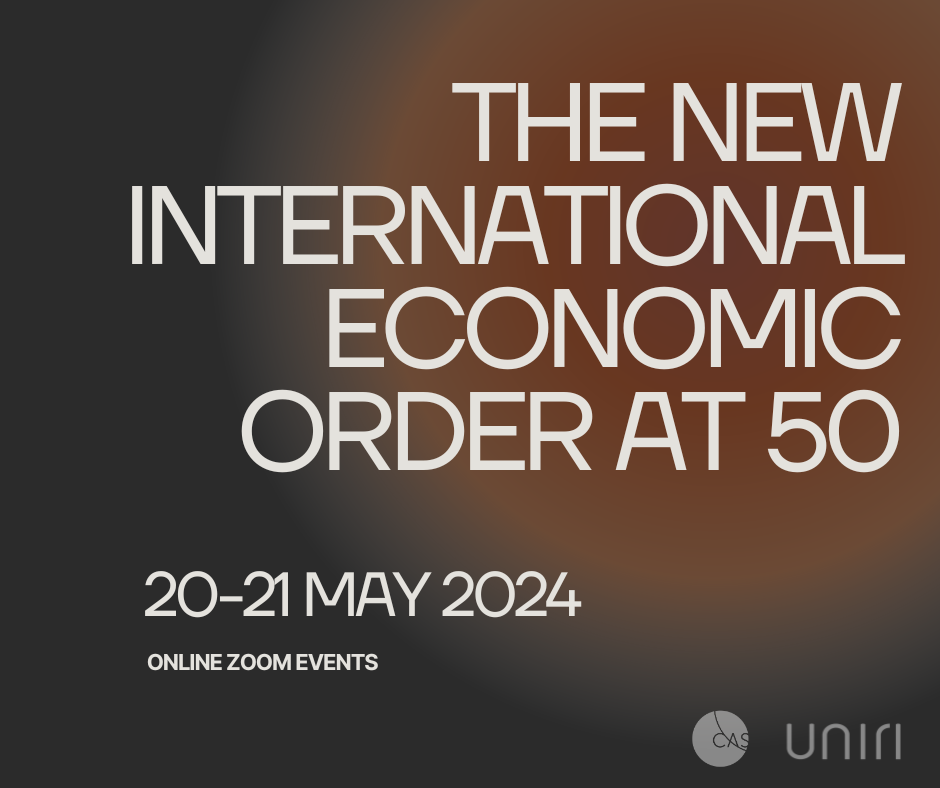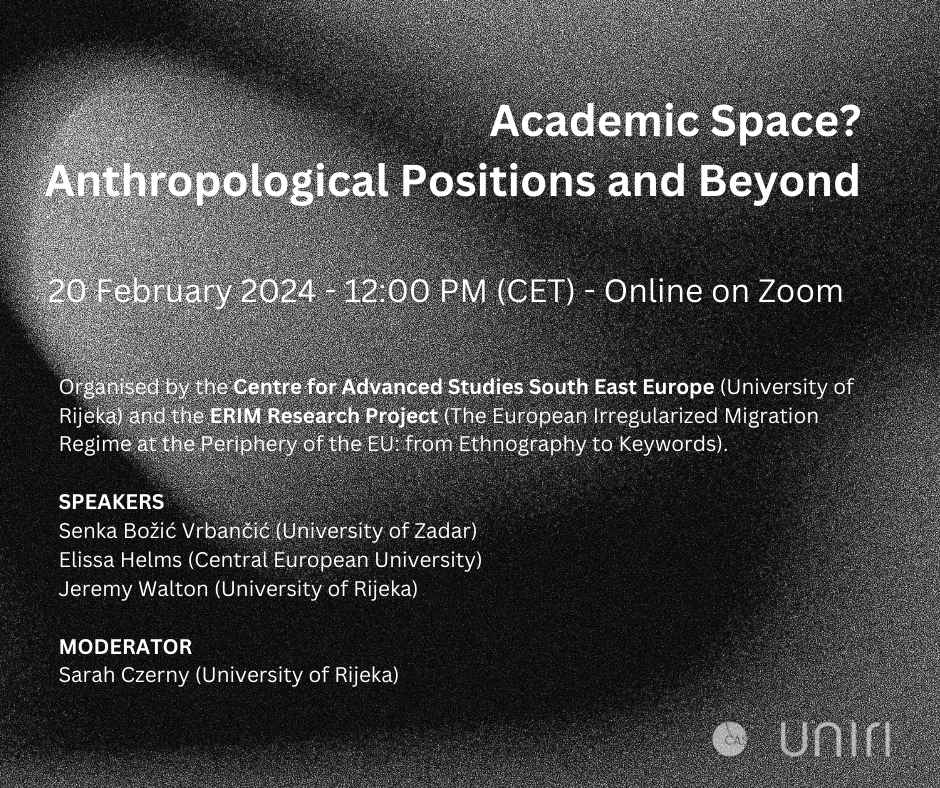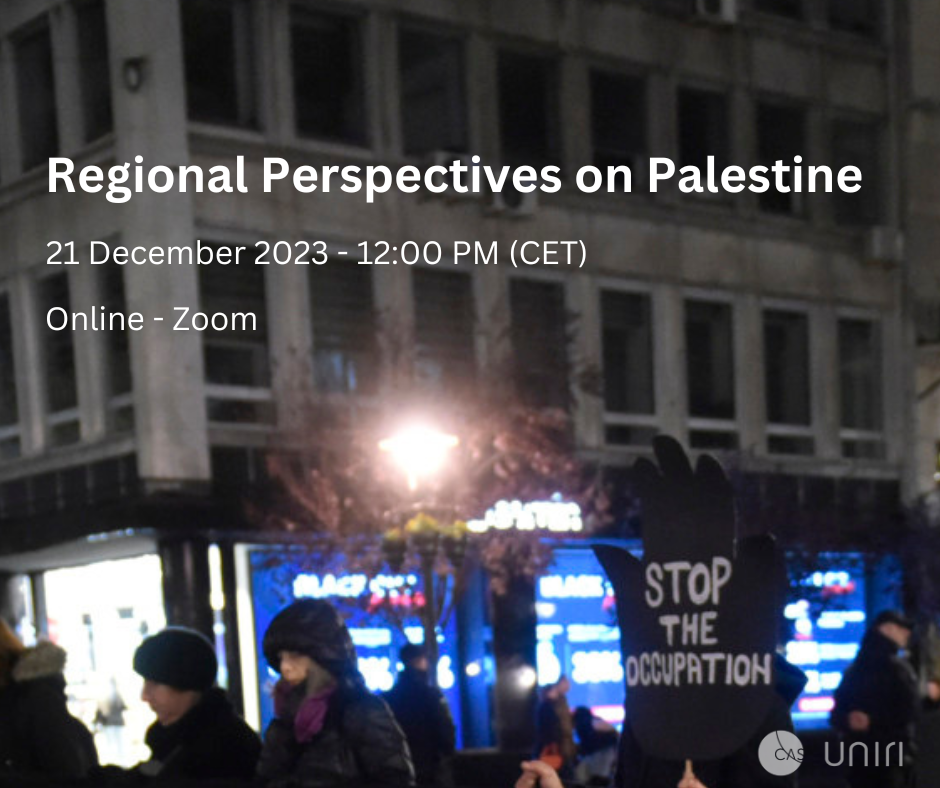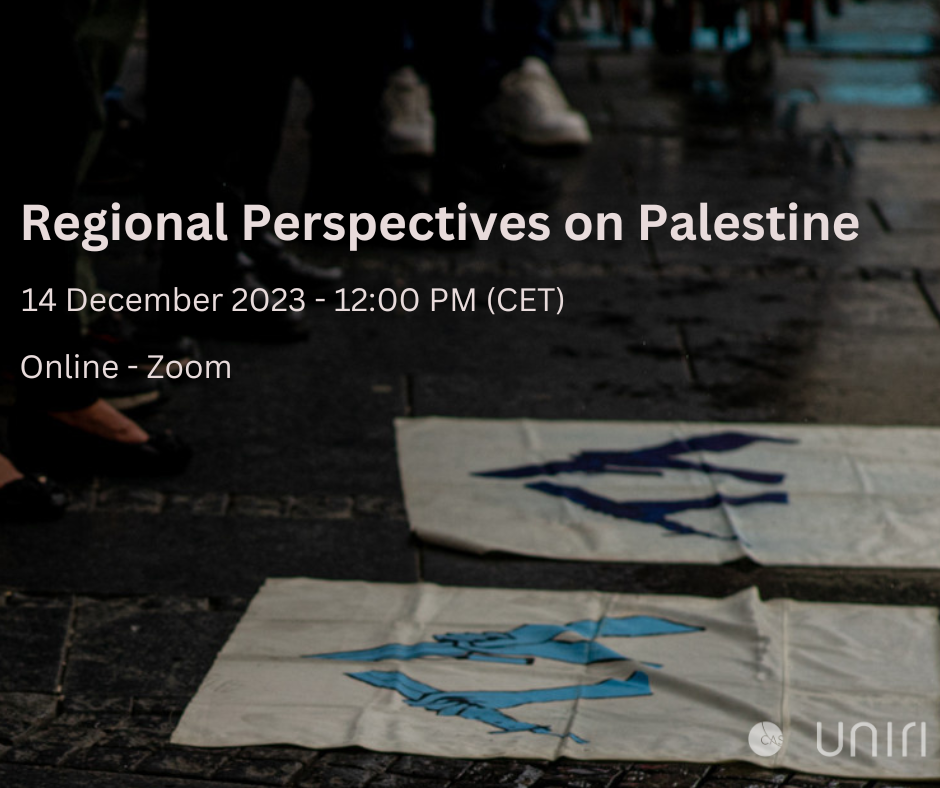Metamorphosis of Labour. The Movement for a Basic Income in the Light of the Modern Paradigm of Labour
Seminar held at the University of Rijeka on May 11, 2018.
“In my talk I will discuss a social and political movement active at an international level, which engages in developing a new paradigm of welfare through the proposal of a universal basic income (UBI). This movement has created an international network – Basic Income Earth Network (BIEN) – it has fostered a huge debate and it is advocating a new, radical practice of democracy, social integration and post industrial solidarity. The goal of UBI is mainly to guarantee social rights to whoever lives in a digital society and not only to people who work.
In my talk, on the one hand, I will illustrate the historical origins and the development of this movement within the European framework; on the other hand, I will discuss the ideology which is behind UBI within the contemporary emerging and global metamorphosis of labor (precariousness, flexibility, total mobilization, polarization, inequality, deindustrialization, end of work). In particular, I will try to discuss UBI on the basis of a long term representation of labor and the constitutive ambiguity which exists at the core of the modern notion of work. For its widespread and traumatic consequences, the metamorphosis of labor challenges democracy differently and it has been analyzed in various fields of studies: economics, law, sociology and political science, but also in artistic, philosophical, and literary studies. The increasing interdisciplinary approaches to this topic are a clear signal of the complexity and the relevance of this human experience. Scholars in the humanities engaged with labor issues because the transformation reflects on the everyday life of ordinary people and on their interior world. In particular, the metamorphosis of labor seems to have lost the traditional connection between work and citizenship due to the modern notion of labor. Modern work is a paid activity that allows an individual to participate actively in the social life of his community. The modern conception of labor is based on the idea that only workers belong to social communities; it is based on the idea that labor is the centre of the democratic process of socialization. To work in a modern society means to participate in the public sphere, to be recognized by others and therefore to own a social identity. Personal growth and social integration characterize the ideal horizon of a long series of struggles and social conflicts and in particular the fights for decent working conditions pursued by labor movements, the idea of class and intellectual engagement and the protections and guarantees that the labor law has built since the industrial revolution. The contemporary emerging crisis of labor relations deals on the contrary with: social disintegration, fragmentation, isolation, risk, increasing unemployment, anxious, poverty, confusion. The transformation that we are living obstacles “vita activa” unveiling a new anthropological mutation characterized by the decline of work as the traditional instrument of the Bildung of the self. The idea of “the end of work” is probably the most emblematic consequence of such a crisis.
In my talk, on the one hand, I will illustrate the historical origins and the development of this movement within the European framework; on the other hand, I will discuss the ideology which is behind UBI within the contemporary emerging and global metamorphosis of labor (precariousness, flexibility, total mobilization, polarization, inequality, deindustrialization, end of work). In particular, I will try to discuss UBI on the basis of a long term representation of labor and the constitutive ambiguity which exists at the core of the modern notion of work. For its widespread and traumatic consequences, the metamorphosis of labor challenges democracy differently and it has been analyzed in various fields of studies: economics, law, sociology and political science, but also in artistic, philosophical, and literary studies. The increasing interdisciplinary approaches to this topic are a clear signal of the complexity and the relevance of this human experience. Scholars in the humanities engaged with labor issues because the transformation reflects on the everyday life of ordinary people and on their interior world. In particular, the metamorphosis of labor seems to have lost the traditional connection between work and citizenship due to the modern notion of labor. Modern work is a paid activity that allows an individual to participate actively in the social life of his community. The modern conception of labor is based on the idea that only workers belong to social communities; it is based on the idea that labor is the centre of the democratic process of socialization. To work in a modern society means to participate in the public sphere, to be recognized by others and therefore to own a social identity. Personal growth and social integration characterize the ideal horizon of a long series of struggles and social conflicts and in particular the fights for decent working conditions pursued by labor movements, the idea of class and intellectual engagement and the protections and guarantees that the labor law has built since the industrial revolution. The contemporary emerging crisis of labor relations deals on the contrary with: social disintegration, fragmentation, isolation, risk, increasing unemployment, anxious, poverty, confusion. The transformation that we are living obstacles “vita activa” unveiling a new anthropological mutation characterized by the decline of work as the traditional instrument of the Bildung of the self. The idea of “the end of work” is probably the most emblematic consequence of such a crisis.
In this framework, I will focus on the relation between work and social identity and I will analyze the symbolic impact of the Universal Basic Income on this relation and on the notion of social identity. In order to do that I will adopt a humanistic perspective in the belief that we cannot reduce work to an economic or legal relation. I will also take into account the Basic Income Network Italia (BIN Italia), an organization which has been created in 2016 by an interdisciplinary group of scholars and social activists (http://www.bin-italia.org/).”
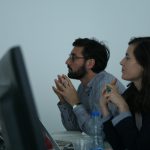 Tiziano Toracca graduated in Law (Pisa, 2005) and in Italian Language and Literature (Pisa, 2011). He got a Joint PhD in Italian Studies, Comparative Literature and Literary Studies (Perugia-Ghent, 2017).
Tiziano Toracca graduated in Law (Pisa, 2005) and in Italian Language and Literature (Pisa, 2011). He got a Joint PhD in Italian Studies, Comparative Literature and Literary Studies (Perugia-Ghent, 2017).He coordinated the Jean Monnet Project I work therefore I am European (http://www.iworkthereforeiam.eu/) at the Department of Philosophy and Education Sciences of the University of Torino. Currently he is research fellow at CAS SEE in Rijeka with a project on the universal basic income in relation with the conception and representation of modern labour. His research focuses on the Italian contemporary narrative, Modernism and Neomodernism, Law and Literature with specific attention to the issue of Labour. He is member of the Center for European Modernism Studies and of the Italian Society for Law and Literature and he is editor of «Allegoria». Since 2012 he teaches humanities in the high school and a course of creative writing in a psychiatric center.

